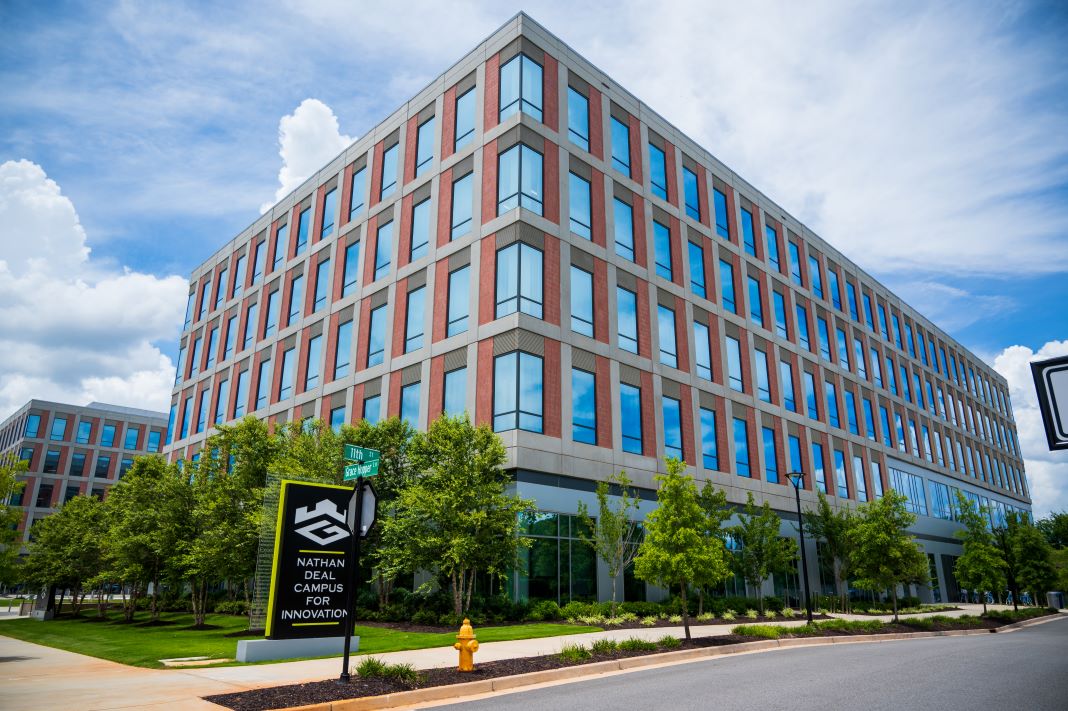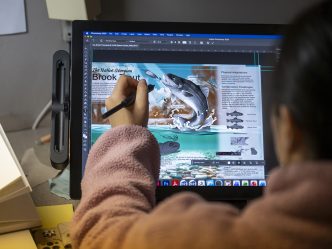Augusta University is one of 44 teams nationwide to receive a $1 million grant from the inaugural NSF Engines Development Awards in the National Science Foundation‘s Regional Innovation Engines program.
The primary objective of these awards is to foster collaboration among partners in the pursuit of economic, societal and technological advancement within their respective regions.
Launched by NSF’s new directorate for Technology, Innovation and Partnerships and authorized by the CHIPS and Science Act of 2022, the NSF Engines program uniquely harnesses the nation’s science and technology research and development enterprise and regional-level resources.
NSF Engines aspires to catalyze robust partnerships to positively impact regional economies, accelerate technology development, address societal challenges, advance national competitiveness and create local, high-wage jobs.
The project, led by Augusta University and titled “Advancing Cyber Security Technologies in the CSRA (GA, SC),” has its technical focus on cybersecurity, cyber-physical systems, edge computing and the Internet of Things (IoT). The Central Savannah River Area (CSRA) is the area surrounding the city of Augusta; it includes 14 counties in Georgia and seven in South Carolina on both banks of the Savannah River.
The project embodies a commitment to inclusivity and addressing regional needs, aiming to bridge the cybersecurity skills gap while simultaneously elevating the socio-economic status of the CSRA. Spearheaded by Augusta University’s School of Computer and Cyber Sciences, this endeavor will involve partnerships spanning academic institutions, nonprofit organizations, for-profit entities and government agencies.
The NSF Engines program was created as a transformational investment for the nation, ensuring the United States remains in the vanguard of competitiveness for decades to come.
“This project will serve as a catalyst for research with real-world applications, technology innovation, and the cultivation of a skilled workforce,” said Alexander Schwarzmann, PhD, dean of the School of Computer and Cyber Sciences and project lead.
“These NSF Engines Development Awards lay the foundation for emerging hubs of innovation and potential future NSF Engines,” said NSF Director Sethuraman Panchanathan, PhD. “These awardees are part of the fabric of NSF’s vision to create opportunities everywhere and enable innovation anywhere. They will build robust regional partnerships rooted in scientific and technological innovation in every part of our nation.
“Through these planning awards, NSF is seeding the future for in-place innovation in communities and to grow their regional economies through research and partnerships. This will unleash ideas, talent, pathways and resources to create vibrant innovation ecosystems all across our nation.”
The CSRA, with recent developments such as the consolidation of the U.S. Army Cyber Command (ARCYBER) at Fort Gordon and Georgia’s $106 million investment in the Georgia Cyber Center, has emerged as a burgeoning hub for cybersecurity innovation. Augusta University’s dedication to advancing technological frontiers is evident through its substantial investment in the School of Computer and Cyber Sciences.
However, despite these positive developments, the CSRA currently faces economic challenges with income levels below national averages. Recognizing the pressing need for initiatives that promote economic growth, this project takes on added urgency, considering the increasing threats of cybercrime and the skyrocketing costs resulting from the damage inflicted by nefarious actors.
By focusing on these critical areas and fostering extensive collaborations among the major regional stakeholders, this initiative aims to propel the CSRA into a vibrant hub of innovation and cybersecurity, marking a significant leap in the region’s technological landscape.
This project boasts a dynamic leadership team comprising individuals from various organizations and backgrounds, ensuring a diverse and multidisciplinary approach. It forges partnerships with academic institutions, government entities, economic development organizations and small businesses. In addition to Augusta University, academic partners include Augusta Technical College, Clark Atlanta University and the University of Georgia.
The DoD/DoE entities include ARCYBER, Cyber Center of Excellence at Fort Gordon and Savannah River National Laboratory (SRNL). The International Economic Development Council (IEDC) and Southeast Cyber Industry Association will play pivotal roles in economic development planning, alongside two small businesses, Trideum and Bigbear.AI, as well as the Georgia Cyber Center. The project will encompass additional stakeholders on both sides of the Savannah River, including the City of Augusta and local demographics.
“This collaborative ethos extends to encompassing more government and private collaborators, fostering interactions and creating opportunities for Augusta University students through paid internships with local small businesses,” said Schwarzmann. “It will also place a spotlight on workforce development, expand enrollments across academic institutions, facilitate resource sharing and offer vital entrepreneurship training.”
The NSF Engines awardees span a broad range of states and regions, reaching geographic areas that have not fully benefited from the technology boom of the past decades. These NSF Engines Development Awards will help organizations create connections and develop their local innovation ecosystems within two years to prepare strong proposals for becoming future NSF Engines, which will each have the opportunity to receive up to $160 million.
 Augusta University
Augusta University




